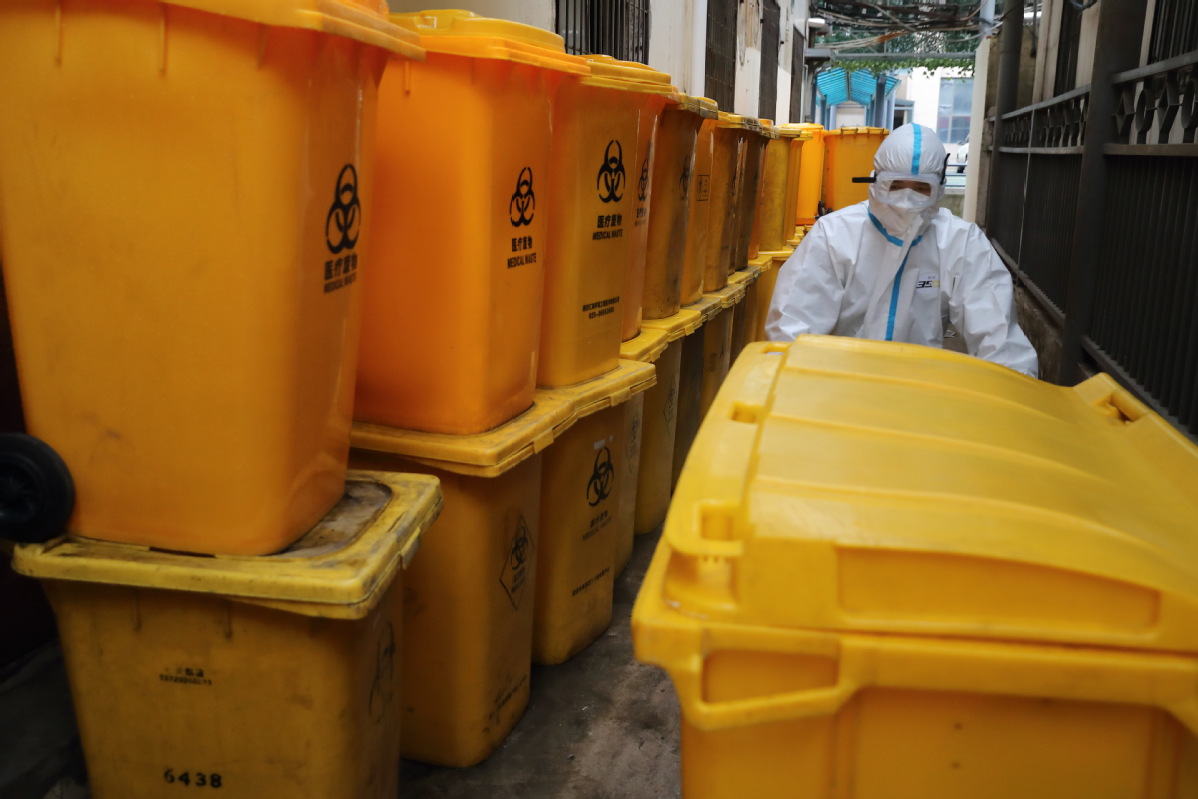Liable Solutions: Recognizing Medical Garbage Disposal Solutions
In the world of healthcare, the proper disposal of clinical waste is a critical facet that requires mindful factor to consider. As medical care centers produce various types of waste that call for specific handling, understanding the nuances of medical waste disposal services is vital.
Importance of Proper Medical Garbage Disposal
Correct medical waste disposal is critical in keeping a sanitary and secure environment within medical care centers. In healthcare setups, various sorts of waste are produced daily, including contagious products, sharps, expired medicines, and chemical compounds. If not properly managed, these wastes can present serious dangers to both healthcare employees and the public. Improper disposal can lead to the spread of infections, injuries from sharps, contamination of water resources, and injury to the setting.

Sorts Of Medical Waste
Within health care centers, a diverse array of waste materials classified as clinical waste is produced, each calling for certain handling and disposal methods. Pathological waste, which consists of cells, body organs, and body parts, demands proper disposal to respect the self-respect of the dead and avoid any kind of biohazards. Comprehending the numerous types of clinical waste is vital for medical care centers to implement effective waste management approaches and safeguard public health and wellness and the atmosphere.
Rules and Compliance
Healthcare facilities should follow stringent laws pertaining to the handling and disposal of medical waste to make sure compliance with legal requirements and safeguard public health and wellness. These regulations are established to avoid the spread of infections, protect the environment, and keep the safety of healthcare employees and the public. Various regulative bodies, such as the Epa (EPA), the Occupational Safety and Wellness Management (OSHA), and the Division of Transportation (DOT), have details standards that healthcare facilities should follow.
To conform with these policies, health care facilities should properly set apart, store, transport, and throw away different kinds of clinical waste. This includes sharps waste, transmittable waste, contaminated materials, and pharmaceutical waste, each needing particular handling treatments. Facilities must additionally keep accurate documents of waste generation and disposal to demonstrate conformity during evaluations.
Non-compliance with medical waste regulations can result in severe fines, penalties, and damages to the center's credibility. For that reason, it is crucial for healthcare facilities to remain notified concerning the most recent laws and execute durable compliance measures to safeguard public health and wellness and the atmosphere.
Advantages of Professional Disposal Solutions
Engaging professional medical waste disposal solutions offers health care facilities a reputable and efficient option for taking care of dangerous materials. These solutions utilize experienced professionals who are well-versed in managing various kinds of medical waste, ensuring correct partition, disposal, transportation, and product packaging. Medical Waste Disposal Services.
Furthermore, expert disposal solutions utilize advanced devices find more information and comply with industry best techniques to decrease environmental effect and reduce the risk of contamination. This not just promotes a learn this here now more secure work setting for health care staff however additionally contributes to general public wellness and safety and security. Furthermore, outsourcing clinical garbage disposal can bring about set you back financial savings over time by eliminating the need for in-house management and disposal systems.
Sustainable Practices in Healthcare

One key sustainable technique in medical care is waste decrease. By applying techniques to decrease unneeded product packaging, single-use products, and overall waste generation, health care centers can significantly reduce the quantity of waste sent out to land fills or incineration. Furthermore, reusing programs for materials like glass, plastic, and paper can better decrease the ecological influence of medical care operations.

Conclusion
To conclude, correct clinical waste disposal is important in maintaining a safe and healthy and balanced setting for both healthcare employees and the public. Comprehending the various kinds of medical waste, adhering to guidelines and compliance standards, and making use of other expert disposal solutions are important steps in accountable waste monitoring. By adopting lasting methods in healthcare centers, we can lower ecological impact and guarantee the wellness of all individuals associated with the medical care sector.
As medical care facilities produce numerous kinds of waste that need specific handling, comprehending the nuances of clinical waste disposal services is paramount.Within health care centers, a diverse array of waste products categorized as clinical waste is produced, each calling for certain handling and disposal techniques. Understanding the numerous types of clinical waste is vital for health care facilities to apply effective waste management techniques and shield public health and wellness and the setting.
By carrying out techniques to minimize unnecessary packaging, single-use things, and overall waste generation, medical care facilities can substantially lower the quantity of waste sent out to garbage dumps or incineration. Comprehending the different types of medical waste, complying with policies and compliance criteria, and using specialist disposal services are important actions in accountable waste administration.